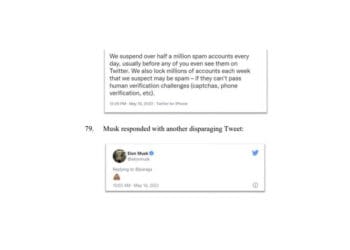Knowing how to engage in competitor interactions is often more art than science. There are few clear lines of conduct to guide information exchanges made for legitimate business reasons. But broad principles do exist to help you consider your options carefully. Vedder Price’s Brian McCalmon discusses.
Throughout the country, sales managers, supervisors and executives attend antitrust trainings with varying degrees of regularity and detail. Antitrust as a corporate and individual pitfall is familiar to most doing business in the United States and abroad. If asked, most sales executives and line personnel can list the most dangerous and easily spotted scenarios to avoid: Don’t ask competitors about their pricing plans; don’t talk to competitors about customers; if competitors begin to discuss forbidden topics in a trade association meeting, stand up, announce your departure for the record and abruptly exit. This is all Antitrust 101.
But there is an Antitrust 102 and 103, and situations calling for a deeper understanding of antitrust may be thrust upon senior executives before they have had time to digest the consequences of a bad choice in the moment. Some risks may be so unobvious that the executive may never see the antitrust consequences at all. And a healthy respect for the antitrust laws, coupled with a poor understanding of them, has led to the unnecessary stifling of potentially efficient corporate initiatives. A deeper understanding of how communications with competitors, suppliers and customers may violate competition law can reduce risk and allow more efficient and procompetitive arrangements to flourish.
Principle 1: You can obtain the information you reasonably need.
Except for price-fixing or other forms of explicit market manipulation, information exchanges typically occur as part of a broader business arrangement: An acquisition or joint venture requires due diligence, a services subcontract requires the disclosure of customer names and locations or a general contractor needs a price from a competitor-subcontractor for a teaming agreement on a government contract.
The common denominator for these and similar situations is that the parties exchanging information are engaged in a legitimate business arrangement together, albeit to varying degrees of complexity. The legitimacy and complexity of the underlying arrangement drive the nature of the information that can be obtained. For example, a services subcontract would justify the names and locations of the customers to be serviced, but not the disclosure to the subcontractor-competitor of the customer prices. Why not? Because the arrangement can be formed as an arm’s-length services transaction, with the subcontracting competitor becoming a customer itself, just like any other customer, and receiving a quote for services based only on its own costs to serve and its desired margin. Doing it the right way can involve time and effort, but the antitrust laws should never prevent parties from obtaining information they reasonably need in order to cooperate in a way that enhances competition.
Principle 2: When and how you receive information is as important as whether you receive it at all.
Deciding that you have a legitimate need for competitively sensitive information is only half the equation. Most often, the form of the information and/or the timing of its receipt serve to defang the antitrust risk of competitors sharing sensitive information with each other and further the Sherman Act’s requirement that such information exchanges be “reasonable,” as reasonableness embraces both the nature of the information received and the manner of its receipt.
The thorniest applications of this precaution occur in M&A due diligence. Consider the following example: When deciding how much to pay to acquire its most significant competitor, “Company A” needs to know what kinds of margins it can expect from the acquisition, which can require detailed information about its competitor’s costs and sales margins. If they share a common addressable customer base, “Company A” may even need to know how much those margins may be compressed, because it has contracts in place with those customers already – perhaps at lower prices. None of this information is antitrust-safe for a competitor to receive from its biggest rival, particularly at the beginning of an auction process with a highly uncertain outcome.
Over the years, antitrust counsel, investment banks and companies have developed a number of tools to help manage this risk, including aggregating or masking data to avoid identification of individual customers, designating a few people to receive sensitive information in exchange for assurances of extended noninvolvement in competitive interactions (the “clean room”), and the use of third-party consultants to receive and analyze the data on behalf of the acquirer.
When confronted with any potential information exchange, corporate counsel should ask themselves a series of questions:
- Is the information competitively sensitive? Often the answer is apparent, but not always. Try to identify specifically how your client could use the information to lessen competition between it and the sender. Consider the most expansive scenarios as you do this. For example, your client and its acquisition target may not compete today for customers in Texas, and your initial conclusion may be that receiving detailed information about customer pricing in Texas need not be masked or viewed in a clean room. But does your company have current plans to expand into Texas in the next few years, or even a general strategy of pushing into the southwest United States? If so, you could be a potential competitor there, and the antitrust laws make few distinctions between actual and potential competition.
- Does the client reasonably need this specific information to accomplish a legitimate business objective? This is where the client must justify its requests, and the answers can be surprising. Consider whether other, less sensitive information could accomplish the goal, and engage in a discussion about the goal itself. More than one executive has admitted under close questioning that part of his or her motivation for wanting information is to use it to advantage should negotiations fail. More often, counsel encounter resistance from busy executives at the notion of obtaining masked or aggregated data; such data is more difficult to evaluate, and the expense and delay involved in hiring consultants can be daunting. This can be a serious issue. Experienced counsel listens carefully to such concerns, as this dialogue can spark creative solutions that accommodate crowded schedules and potentially limited resources. A merger between large and publicly traded corporations may justify several due diligence and integration teams for different areas of responsibility, each monitored by antitrust counsel, while an acquisition between smaller competitors with very small executive teams may render “information firewalls” and clean rooms impractical.
- Does the client need the information now, or can it wait? In the M&A context specifically, as well as in joint ventures in which the parties will integrate their operations in an area, the risk that sensitive information can be used to lessen competition should the transaction fall apart will lessen as it becomes more certain that the transaction will occur. Sometimes, simply waiting a bit is enough. Careful explanation of the antitrust reasons for waiting will usually help executives think through the progression of tasks and stage information requests accordingly.
Principle 3: It’s not always about you.
Antitrust risk in exchanges of sensitive information between competitors is often obvious, but in other contexts, it’s harder to spot. For example, trade publications often maintain price indices for an industry, and generally companies and publications are careful in their conversations about and treatment of the data. Potential antitrust exposure stems not only from the provision of information for publication, but from the interactions the publication may have with other industry competitors, who may not be as careful or ethical – and careless or malignant efforts by others can expose the entire industry to claims of “hub-and-spoke” conspiracy and mire companies in litigation. Even unconnected events and personnel within one company can lead to claims of conspiracy. For instance, a procurement VP meeting with a customer-competitor concerning a supply arrangement just before pricing management pursues a price increase because that competitor just raised its price.
Whenever asking for or giving sensitive information to anyone outside the company, or before communications with competitors, counsel should ask not only what it or the receiving/giving party can potentially do with it, but also what actions by others, inside and outside the company, could expose the company to the risk of lawsuit or investigation? And is there anything you can do to lessen that risk?
Information exchanges can carry significant risk and can be very interesting areas of engagement for antitrust lawyers – not often a good thing from a client’s perspective. If carefully managed according to the principles outlined above, however, corporate counsel can ensure their business clients never go without information that they reasonably need to accomplish legitimate and pro-competitive objectives.
Also from Brian McCalmon: Forming and Maintaining Legal Resale Price Control Policies



 Brian K. McCalmon is a Shareholder in the Litigation practice area in Vedder Price’s Washington, D.C. office.
Brian focuses his practice on Antitrust & Trade Regulation, defending corporations and individuals in merger and civil conduct investigations by the Department of Justice (DOJ), Federal Trade Commission (FTC) and state attorneys general. He also handles monopolization and price-fixing federal and state investigations, as well as civil antitrust litigation. He regularly counsels individuals and companies on the legality of their and their competitors’ advertising campaigns and on issues ranging from substantiation of scientific claims to labeling practices governed by FTC regulations and labeling statutes.
Brian K. McCalmon is a Shareholder in the Litigation practice area in Vedder Price’s Washington, D.C. office.
Brian focuses his practice on Antitrust & Trade Regulation, defending corporations and individuals in merger and civil conduct investigations by the Department of Justice (DOJ), Federal Trade Commission (FTC) and state attorneys general. He also handles monopolization and price-fixing federal and state investigations, as well as civil antitrust litigation. He regularly counsels individuals and companies on the legality of their and their competitors’ advertising campaigns and on issues ranging from substantiation of scientific claims to labeling practices governed by FTC regulations and labeling statutes.






